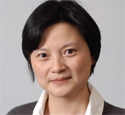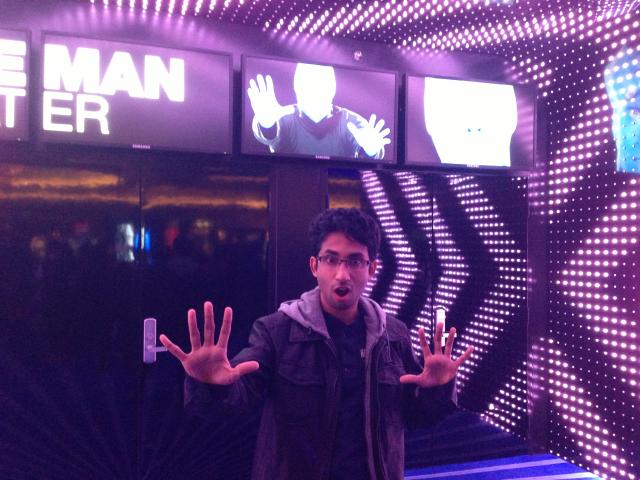
 The Computer Science and Engineering department was well represented at ASPLOS 2016, the 21st ACM International Conference on Architectural Support for Programming Languages and Operating Systems. It took place April 2-6 at Georgia Tech in Atlanta. CSE Prof. Yuanyuan (YY) Zhou (at right) chaired the conference this year as chair of the Program Committee, whose members included fellow CSE Prof. Michael Taylor. Zhou notes that ASPLOS is "the premier forum for multidisciplinary systems research spanning computer architecture and hardware, programming languages and compilers, operating systems and networking, as well as applications and user interfaces." Sessions dealt with performance, energy and thermal efficiency, as well as resiliency, security and sustainability, as computer scientists grapple with the explosion of big data, increasing human-centered applications, and widely varying scales from ultra-low-power wearable devices to exascale parallel and cloud computing. The program included two keynotes, a debate, and 53 papers.
The Computer Science and Engineering department was well represented at ASPLOS 2016, the 21st ACM International Conference on Architectural Support for Programming Languages and Operating Systems. It took place April 2-6 at Georgia Tech in Atlanta. CSE Prof. Yuanyuan (YY) Zhou (at right) chaired the conference this year as chair of the Program Committee, whose members included fellow CSE Prof. Michael Taylor. Zhou notes that ASPLOS is "the premier forum for multidisciplinary systems research spanning computer architecture and hardware, programming languages and compilers, operating systems and networking, as well as applications and user interfaces." Sessions dealt with performance, energy and thermal efficiency, as well as resiliency, security and sustainability, as computer scientists grapple with the explosion of big data, increasing human-centered applications, and widely varying scales from ultra-low-power wearable devices to exascale parallel and cloud computing. The program included two keynotes, a debate, and 53 papers.
 Those papers included a UC San Diego paper on Heterogeneous-ISA Program State Relocation (HIPStR). CSE Profs. Dean Tullsen and Hovav Shacham co-authored the paper, which was presented by the paper's first author, Ashish Venkat (at left). Both Venkat and Sriskanda Shamasunder are Ph.D. students advised by Tullsen and Shacham, respectively. As outlined in his presentation and the underlying paper, Venkat told his ASPLOS audience that the work showcased the security benefits derived from the "novel defense called HIPStR that combines dynamic randomization of run-time program state with non-deterministic process migration between heterogeneous-ISAs [Instruction Set Architectures]." Specifically, he said, the co-authors determined that HIPStR outperformned the state-of-the-art defense, Just In Time-Return-Oriented Programming (JIT-ROP), by 15.6 percent, while providing greater security guarantees as well.
Those papers included a UC San Diego paper on Heterogeneous-ISA Program State Relocation (HIPStR). CSE Profs. Dean Tullsen and Hovav Shacham co-authored the paper, which was presented by the paper's first author, Ashish Venkat (at left). Both Venkat and Sriskanda Shamasunder are Ph.D. students advised by Tullsen and Shacham, respectively. As outlined in his presentation and the underlying paper, Venkat told his ASPLOS audience that the work showcased the security benefits derived from the "novel defense called HIPStR that combines dynamic randomization of run-time program state with non-deterministic process migration between heterogeneous-ISAs [Instruction Set Architectures]." Specifically, he said, the co-authors determined that HIPStR outperformned the state-of-the-art defense, Just In Time-Return-Oriented Programming (JIT-ROP), by 15.6 percent, while providing greater security guarantees as well.
ASPLOS 2016 attracted 285 participants, and the conference was supported by 16 industry sponsors, including Apple, Huawei, Microsoft, Google, Facebook, Qualcomm, NetApp, ARM, Intel, IBM, VmWare, Oracle, Baidu, Nokia, HP and other companies.

